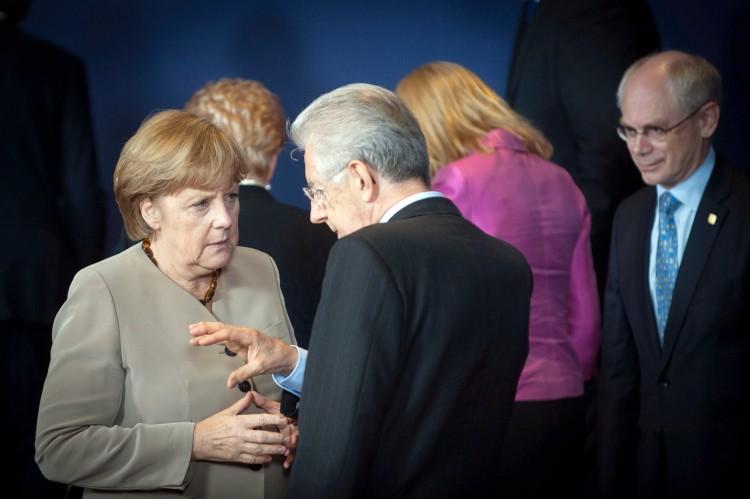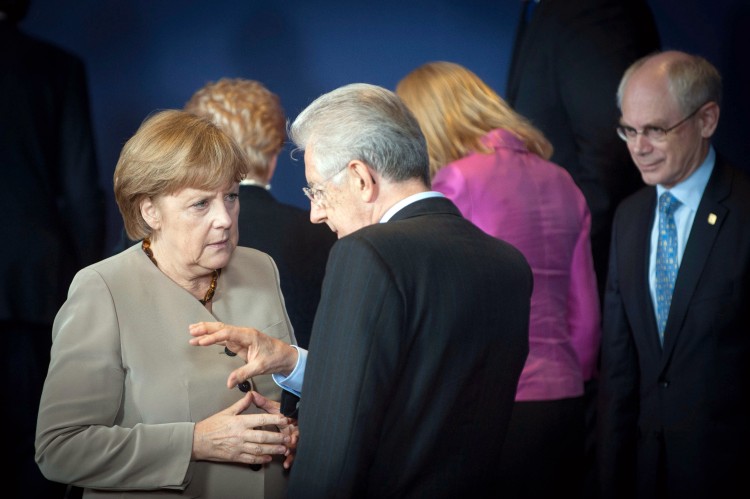STOCKHOLM—European leaders gathering in Brussels this week are trying to chart a course out of the quagmire of the euro crisis by looking at options for greater European integration. The discussions over unity, however, are expected to be hampered by the deep divisions in approach that still exist among member states.
On Tuesday, President of the European Economic and Social Committee (EESC) Staffan Nilsson urged leaders to come to a decision on a “master plan for Europe.”
“Either the eurozone—with Europe in its wake—will make the quantum leap in integration or it will break apart,” he said in a statement.
European Council President Herman Van Rompuy is pushing for a European banking union that would pool sovereign debt by issuing eurobonds. Countries like France, Spain, and Italy are behind the plan, whereas German Chancellor Angela Merkel is its biggest opponent.
The Netherlands is also opposed to it. Britain has so far taken a kind of middle ground, being positive toward a eurozone banking union but, as a non-euro EU member, not intending to participate.
Among non-euro European Union members, such as Sweden and the Czech Republic, the plan has also registered dissent. They too would also be affected by a banking union in which all EU countries would take responsibility for each other’s debts and countries that fail to live up to their responsibilities would lose parts of their economic sovereignty to the EU.
Thomas Persson, associate professor at the Department of Government at Sweden’s Uppsala University, thinks pursing such a path could erode democracy in Europe.
“Increased economic cooperation may happen at the expense of a weakened democracy,” said Persson on Thursday.
“Citizens in most countries aren’t calling for more of Europe. These calls come from the elite in Brussels. Taking further steps toward increased integration without support from the citizens of Europe could undermine the whole EU project and lead to more division between countries,” he said.
And division is indeed already great. Germany, the main engine of the eurozone, is pushing for a political union with more guarantees for fiscal discipline, while other countries want to see the aforementioned banking union and eurobonds.
Persson is not optimistic about arriving at common ground during two days of meetings, June 28–29.
“My expectations are very limited. I think the countries are too far apart,” he said.
It has been argued by euroskeptics that the euro was created and promoted by the evil and the foolish, meaning that some believed against common sense that it would be a success in its current form, while others knew it would not, and used it as a means to force the increased integration that is now being discussed in the wake of the common currency’s first major crisis.
Persson thinks reality is more complex, however:
“A monetary union without a fiscal union was a full-scale experiment, and went against previous experience. We are paying the price for that now. I doubt, however, that the biggest supporters of further integration actually saw this as a way to force things in their direction,” he said.
“I think they wanted a closer collaboration already at the time of the Maastricht Treaty, but they had to back down. The EU always develops by way of compromise.”
The Epoch Times publishes in 35 countries and in 19 languages. Subscribe to our e-newsletter.






